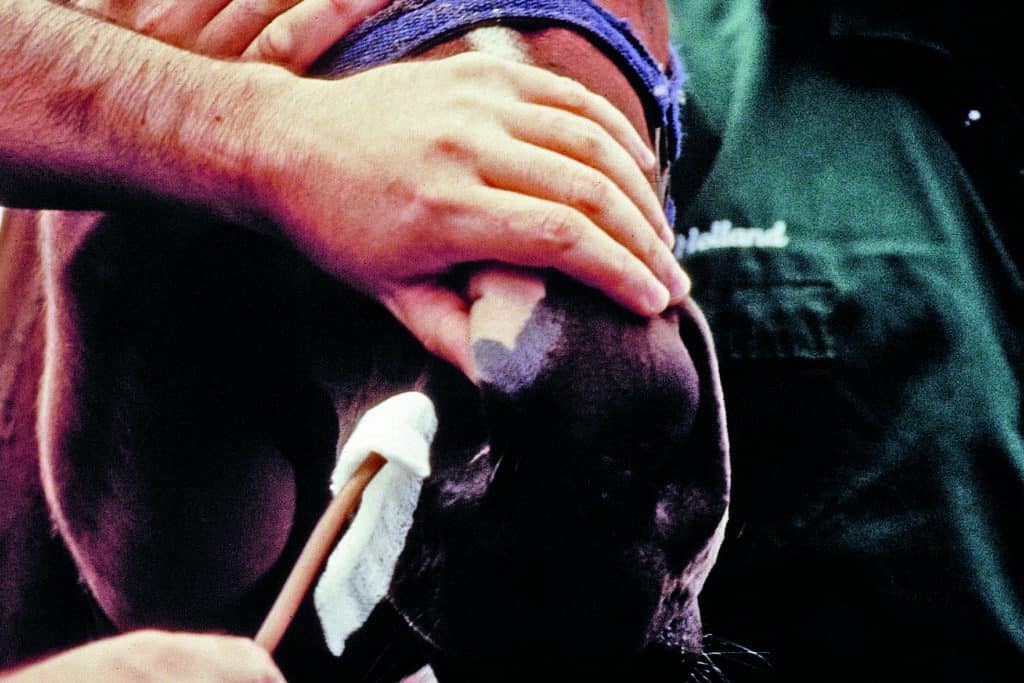Multiple Western States Affected by EHV-1 Outbreak
Veterinarians in several states are determining the extent of a possible equine herpesvirus-1 (EHV-1) outbreak
Veterinarians in several states are determining the extent of a possible equine herpesvirus-1 (EHV-1) outbreak
New Jersey Secretary of Agriculture Douglas H. Fisher announced May 6 that the state Department of Agriculture (DOA) has lifted quarantines at Overbrook and Tourelay Farms in Colts Neck, which have restricted horse movement in and out of the two
The New Jersey Department of Agriculture (NJDA) has quarantined a second Colts Neck horse farm as part of its investigation into an outbreak of the neurologic form of equine herpesvirus (EHV-1), that has led to the death of one horse and sickened
The New Jersey Department of Agriculture has quarantined a horse farm in Colts Neck, Monmouth County, after six horses contracted the neurologic form of Equine Herpes Virus-1 (EHV-1). The disease was discovered by a private veterinarian
Cornell University’s Equine Hospital returned to normal operating status April 12 when the quarantine put in place after two horses tested positive for the neurologic form of equine herpesvirus (EHV-1) was lifted. Additional biosecurity protocol is
International reports of contagious equine metritis, equine herpesvirus, equine influenza, strangles, equine piroplasmosis, equine arteritis virus, Eastern equine encephalomyelitis, West Nile virus, salmonella, and more.
New information has surfaced in regards to the voluntary quarantine at Cornell University’s equine hospital due to two cases of the neurologic form of equine herpesvirus (EHV-1). New York State Department of Agriculture and Markets’ (NYSDAM) animal
The Cornell University College of Veterinary Medicine’s equine hospital is under a voluntary quarantine after confirming a case of the neurologic form of equine herpesvirus (EHV-1). The quarantine began March 20 and will continue indefinitely.
Equine arteritis virus (EVA) and equine herpesvirus-1 (EHV-1) are the two main topics of research for Udeni Balasuriya, BVSc, MS, PhD, associate professor of virology at the Gluck Equine Research Center.
A ban that went into effect March 9 banning Penn National-stabled horses from entering Maryland Jockey Club facilities has been lifted.
The ban was ordered when a horse stabled at Penn National Race Course was euthanized after displa

Recent EHV-1 outbreaks have been alarming in their high neurological attack rate in both vaccinated and unvaccinated horses. Therapeutic intervention with antiviral nucleoside analogs may limit the spread of the virus during an active EHV-1 outbreak while protecting infected horses from the crippling effects of severe neurological disease.
A 74-page report on equine herpesvirus myeloencephalopathy (EHM), for which equine herpesvirus-1 (EHV-1) has been identified as a causative agent, was released by the USDA Animal and Plant Health Inspection Services, Centers for Epidemiology and
Approximately 1,270 readers of TheHorse.com responded to a poll asking, “Which two vaccinations do you feel are most important?”